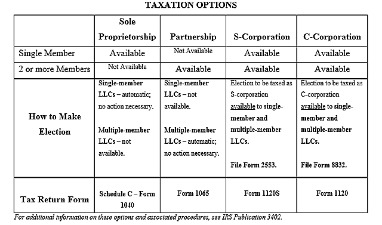
These tasks, which once required significant manual effort and time, can now be completed quicker and more accurately by automation, freeing up employees to focus on higher value tasks and more strategic activities. We can notice that, although it primarily deals with banking and financial services, the extant research has addressed the topic in a vast array of industries. This confirms that the application potential of AI is very broad, and that any industry may benefit from it. The panelists noted that AI ventures are attracting substantial investments, including collaborations with startups and strategic academic partnerships.
AI and credit risk in banks
Generic advice and guidance is ok as a starting point, but it can only take you so far when looking to make decisions about your finances. Now, banks that use AI systems allow them to look at a variety of factors such as spending habits, savings habits, and upcoming life events such as a wedding or big trip to give customers personalized suggestions and help. Proactive governance can drive responsible, ethical and transparent AI usage, which is critical as financial institutions handle vast amounts of sensitive data. AI can help companies drive accountability transparency and meet their governance and regulatory obligations.
AI and the stock market
More elements of financial statements lately, emerging countries in Southeast Asia and the Middle East have received growing interest. Finally, a smaller number of papers address underdeveloped regions in Africa and various economies in South America. First, using HistCite and considering the sample of 892 studies, we computed, for each year, the number of publications related to the topic “AI in Finance”.
Key insights
Given AI’s global reach, international co-operation is essential for developing standards and sharing best practices. Here are a few examples of companies using AI and blockchain to raise capital, manage crypto and more. Having good credit makes it easier to access favorable financing options, land jobs and rent apartments.
- AI’s ability to rapidly and comprehensively read and correlate data combined with blockchain’s digital recording capabilities allows for more transparency and enhanced security in finance.
- The financial industry is well known for being data-driven and embracing emerging technology to provide efficiency, cost savings, detect fraudulent activity and keep operations running smoothly.
- AI is modernizing the financial industry by automating traditionally manual banking processes, enabling a better understanding of financial markets and creating ways to engage customers that mimic human intelligence and interaction.
- Forthcoming research may analyse the effect of investor sentiment on specific sectors (Houlihan and Creamer 2021), as well as the impact of diverse types of news on financial markets (Heston and Sinha 2017).
AI comprises a broad and rapidly growing number of technologies and fields, and is often regarded as a general-purpose technology, namely a technology that becomes pervasive, improves over time and generates complementary innovation (Bresnahan and Trajtenberg 1995). As a result, it is not surprising that there is no consensus on the way AI is defined (Van Roy et al. 2020). Sentiment analysis builds on text-based data from social networks and news to identify investor sentiment and use it as a predictor of asset prices.

It is used in fraud detection, credit decisions, risk management, customer service, compliance, and portfolio management, improving accuracy and efficiency. AI is also being adopted in asset management and securities, including portfolio management, trading, and risk analysis. The first two decades of the twenty-first century have experienced an unprecedented way of technological progress, which has been driven by advances in the development of cutting-edge digital technologies and applications in Artificial Intelligence (AI). Artificial intelligence is a field of computer science that creates intelligent machines capable of performing cognitive tasks, such as reasoning, learning, taking action and speech recognition, which have been traditionally regarded as human tasks (Frankenfield 2021).
Over the past two decades, artificial intelligence (AI) has experienced rapid development and is being used in a wide range of sectors and activities, including finance. In the meantime, a growing and heterogeneous strand of literature has explored the use of AI in finance. The aim of this study is to provide a comprehensive overview of cr what does cr stand for the free dictionary the existing research on this topic and to identify which research directions need further investigation.
Further research may also compare the predictive performance of advanced times series models, such as genetic algorithms and hybrid NNs, for forex trading purposes (Amelot et al. 2021). AI can have many benefits, including better accessibility, timely information, cost-effective services, and improved user experiences. However, it also creates challenges like deepfakes, deceptive AI outputs, data protection, privacy concerns, and issues of bias and discrimination that can negatively impact financial consumers and retail investors. Generative AI systems entail risks concerning the quality and reliability of accounts receivable vs payable: differences and definition 2023 their results, made worse by users’ potential lack of awareness of the models’ limitations. Considering the deep interconnections between financial firms, as well as the complexity and opacity around models and data, the use of AI raises concerns about introducing new or magnifying existing risks in financial markets.
